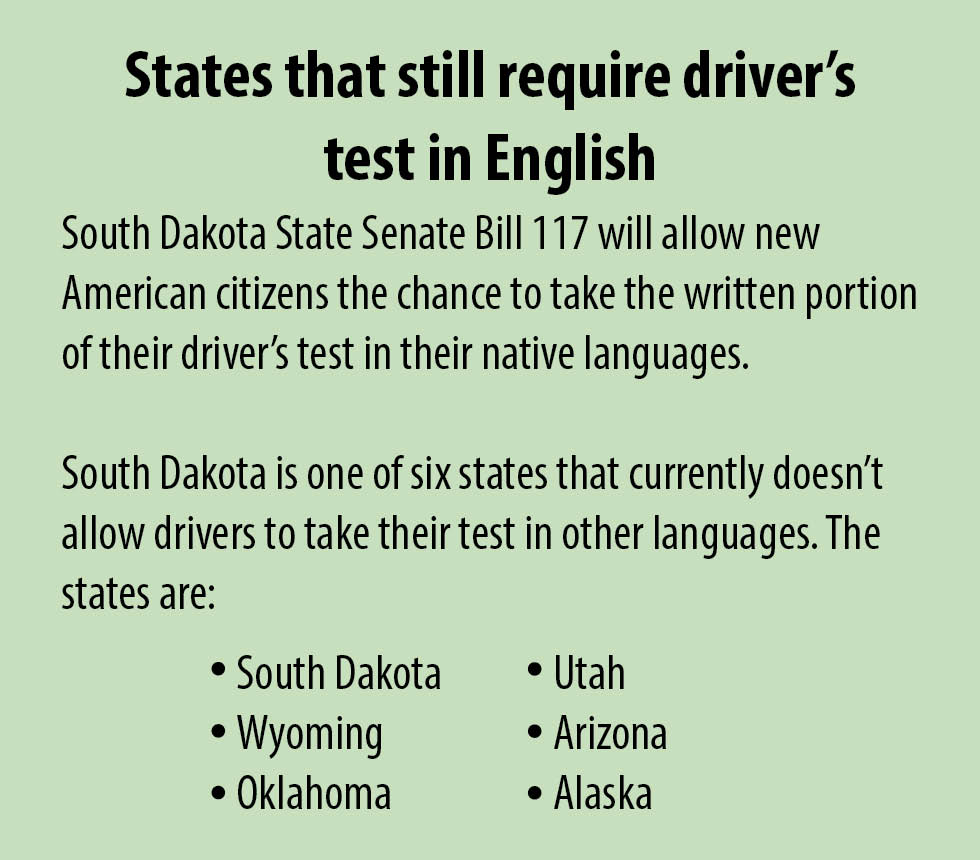
South Dakota Senate Bill 117 will make driver’s test available in more languages
Only six states offer driver’s tests solely in the English language. If South Dakota Senate Bill 117 is passed, there will only be five.
SB 117 will allow new Americans the option to take the written portion of the driver’s test in their native language, specifically Spanish.
There are roughly 35,000 Spanish speakers in South Dakota, a number that keeps growing. Reynold Nesiba, Democratic state Senator of Sioux Falls and bill sponsor, said this bill will help improve the safety of the state for everyone.
“We are safer as a community if folks know the rules of the road because they can read it in their own language,” Nesiba said.
Nesiba and other supports said this bill will cut down on the number or non-licensed drivers on the roads.
Besides road safety, Nesiba said it will help improve workforce development. He said it will help fill jobs including construction workers that would need to drive utility trucks in order to work.
Although the bill has seen support in the Senate, the South Dakota Department of Public Safety has opposed this bill.
The DPS said they foresee it costing up to $62,000 to translate all the testing material. Bill supporters note that currently, each Spanish speaker has to pay $60 for each test in order to have an interpreter.
The DPS also said individuals have the opportunity to hire a translator and do not “really see that there’s an issue.”
The Sioux Falls and Rapid City Chambers of Commerce testified to the Senate Transportation Committee earlier this month stating the language restrictions on driver’s license testing negatively impacts their ability to fill job positions.
According to the Federal Reserve, unemployment rates were at 2.9 percent in December. Supporters say if more people are able to fill these positions the more businesses will be able to expand.
SB 117 would add driver’s license tests to the list of exceptions to South Dakota Codified Law 1-27-20, which identifies “the common language of the state” as English.


